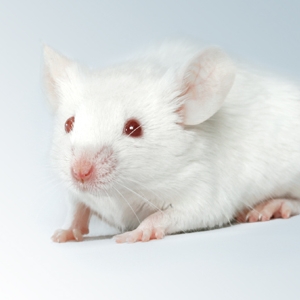Not just sad, but maybe angry or depressed. New research reveals the scientific reason behind the link between hunger and mood. And, not surprisingly, science has pinned responsibility for the link on one of the foremost health issues of our modern world: hunger simply stresses you out…
 “Don’t get ‘hangry’ – get stuffed!” Eat your way to health and happiness…
“Don’t get ‘hangry’ – get stuffed!” Eat your way to health and happiness…
What they did…
Researchers at the University of Guelph carried out a series of simple mouse-based studies to test their theory.
They gave mice a glucose blocking medication causing mild hypoglycemia, and then placed them in one of two chambers for a set period of time. Later, they were given an injection of distilled water and placed in the second chamber for the same period of time. After another ‘rest’ period, the mice were allowed to choose which chamber they wanted to enter. And they uniformly avoided the first chamber.
“This type of avoidance behaviour is an expression of stress and anxiety,” Dr. Francesco Leri explains. “The animals are avoiding that chamber because they had a stressful experience there. They don’t want to experience it again.”
When they tested the blood of the mice after the first, stress-inducing trial, researchers found elevated levels of cortisol, a well-known indicator of stress.
Another key behaviour observed in the test mice when they were under hypoglycemic stress was sluggishness and a lack of movement.
“You might argue that this is because they need glucose to make their muscles work,” Leri says. “But when we gave them a commonly used antidepressant medication, the sluggish behaviour was not observed. The animals moved around normally. This is interesting because their muscles still weren’t getting the glucose, yet their behaviour changed.”
What it means…
In short, it means that the long-suspected link between hunger and mood is real, and is corporeally mediated, but psychological.
“We found evidence that a change in glucose level can have a lasting effect on mood,” said Leri. “I was skeptical when people would tell me that they get grouchy if they don’t eat, but now I believe it. Hypoglycemia is a strong physiological and psychological stressor.”
The study has significant implications for the development of new treatment for anxiety and depression.
“The factors that lead someone to develop depression and anxiety can be different from one person to the next. Knowing that nutrition is a factor, we can include eating habits into possible treatment.” PhD Student Thomas Horman notes.
The findings also provide insight into the connection between depression and diseases such as obesity, diabetes, bulimia and anorexia
My take…
I always knew being hungry – i.e.- suffering from low blood sugar – made me ‘hangry’. Knowing why makes it easier for me to rationalize stuffing my face to cheer myself up, rather than blaming my upset on psychological causes which are much tougher to deal with.
Seriously, though… It’s good to know that eating regularly and following a balanced diet can help you thrive emotionally as well as physically.
~ Maggie J.

